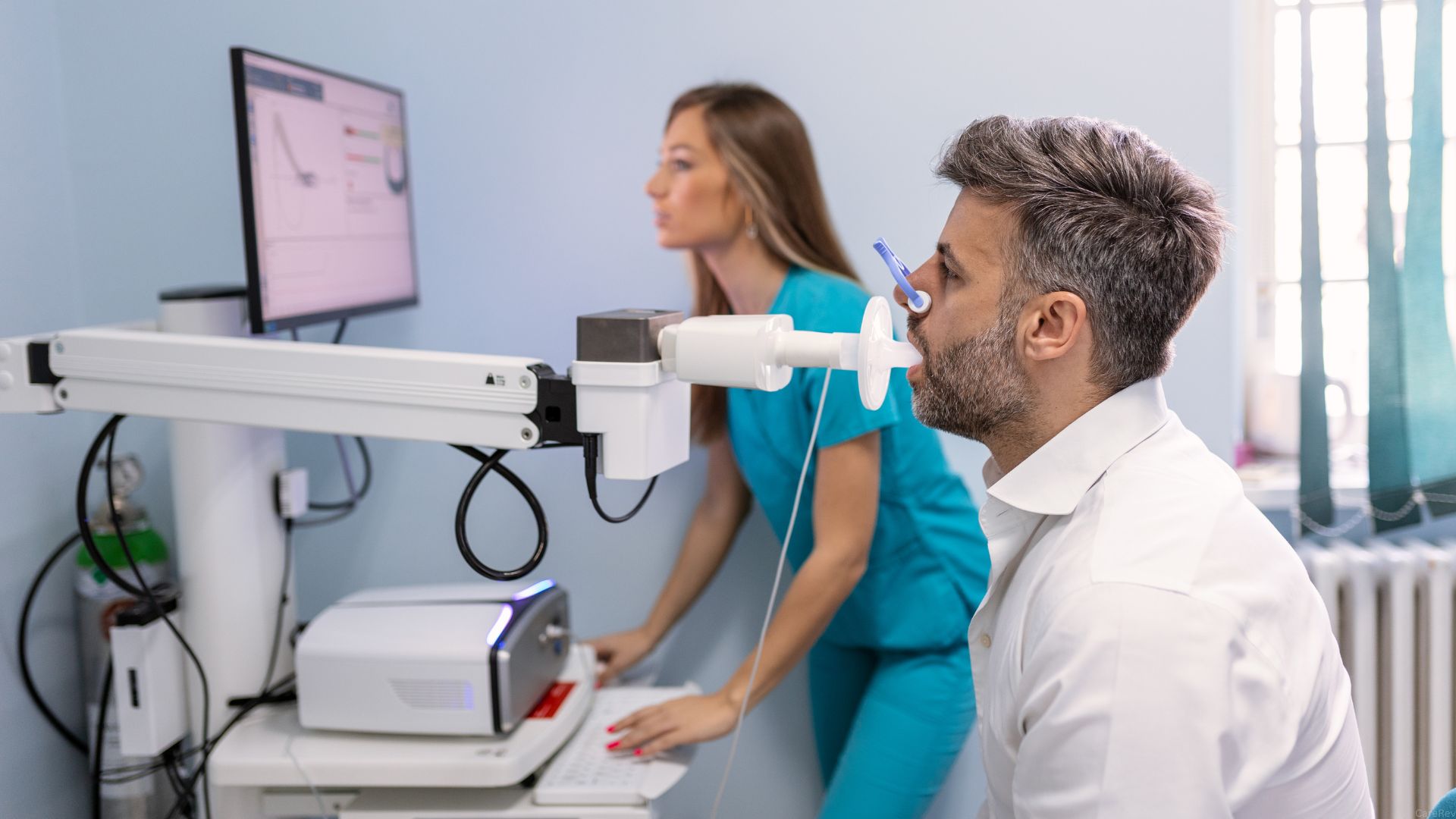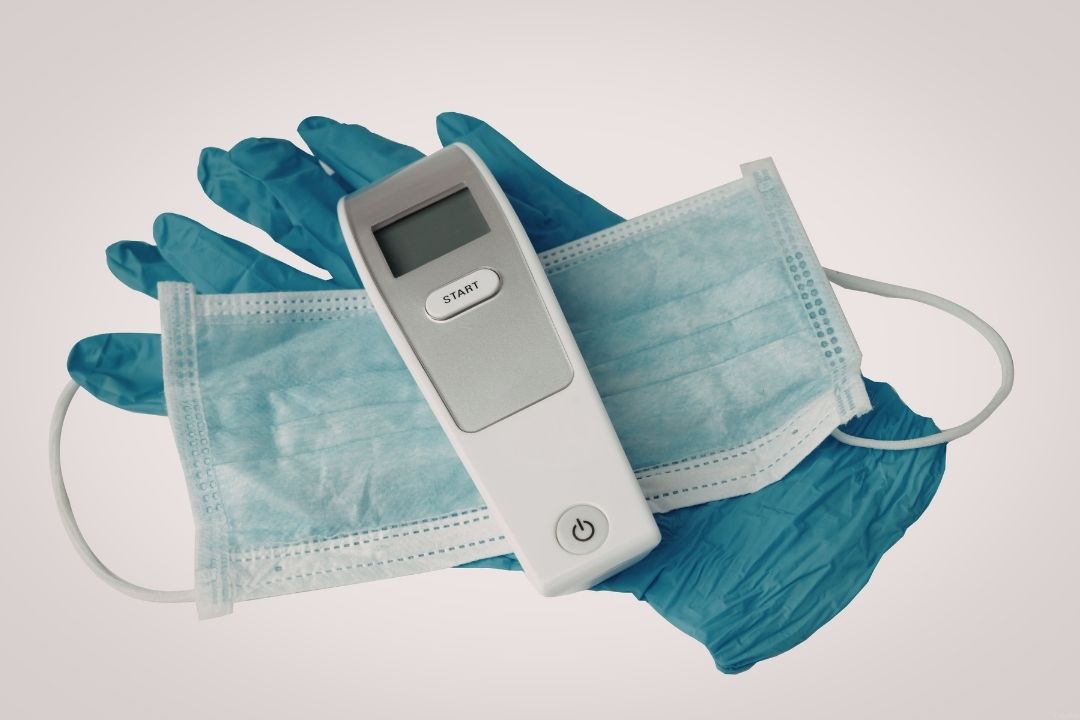
In the world of respiratory care, specialization is increasingly valuable. One of the most respected certifications for those looking to deepen their expertise in pulmonary diagnostics is the Certified Pulmonary Function Technician (CPFT) credential. Whether you're a respiratory therapist aiming to expand your skillset or a healthcare professional exploring specialized roles, CPFT certification can open doors to rewarding opportunities.
This guide will walk you through everything you need to know about becoming a CPFT, from eligibility and exam prep to career benefits and long-term outlook. Let’s dive into what it takes to earn this respected credential.
What is CPFT certification?
The Certified Pulmonary Function Technician (CPFT) credential is awarded by the National Board for Respiratory Care (NBRC) to qualified professionals who demonstrate expertise in pulmonary function testing (PFT). These tests are vital tools in diagnosing and managing respiratory diseases like asthma, chronic obstructive pulmonary disease (COPD), and interstitial lung disease.
CPFTs are often the go-to professionals for conducting diagnostic procedures such as spirometry, lung volume measurement, and diffusion capacity testing. Their work is essential in hospitals, pulmonary labs, outpatient clinics, and even occupational health settings.
Unlike general respiratory therapists who may perform a broader range of duties, CPFTs focus specifically on the operation, calibration, and interpretation of pulmonary function tests.
Who is eligible for the CPFT exam?
The NBRC outlines specific eligibility requirements for candidates looking to sit for the CPFT exam. As of the latest updates:
- You must already be certified as a Certified Respiratory Therapist (CRT) or a Registered Respiratory Therapist (RRT).
- International applicants may also qualify if their credentials are deemed equivalent and approved by the NBRC.
- While no specific amount of work experience is required, it is highly recommended that candidates have hands-on experience in pulmonary diagnostics prior to taking the exam.
These requirements ensure that only professionals with foundational knowledge and some practical exposure are pursuing this specialized certification.
Why pursue CPFT certification?
Let’s get clear on one thing—CPFT certification is more than just a title. It’s a career accelerator.
Here’s why healthcare professionals choose to earn it:
- Professional credibility: A CPFT credential signals advanced competence in pulmonary diagnostics, boosting your reputation with employers and peers.
- Career advancement: CPFTs are often considered for specialized roles in PFT labs, research institutions, and occupational health programs.
- Higher earning potential: Certified specialists tend to command higher salaries than generalists. While exact figures vary by region, CPFTs generally see a measurable bump in income.
- Job security and demand: With respiratory illnesses on the rise, the need for skilled pulmonary function technicians is growing in both acute and chronic care settings.
If you're looking to carve out a niche in your field, this credential could be your ticket.
What to expect on the CPFT exam
Understanding the structure and content of the CPFT exam is critical for effective preparation.
Exam format:
- Multiple-choice questions
- Computer-based testing
- Administered at testing centers nationwide
Key content areas include:
- Instrumentation and equipment: Setup, calibration, and troubleshooting of PFT equipment.
- Test procedures and protocols: Performing spirometry, lung volumes, and diffusion capacity tests accurately and consistently.
- Data interpretation: Understanding test results, patterns of lung disease, and recognizing poor patient effort or errors.
- Patient preparation and education: Ensuring patients understand test procedures and are physically prepared to participate.
- Quality assurance and infection control: Maintaining hygiene, calibrating machines, and ensuring valid results.
The exam tests not just rote knowledge, but applied understanding of pulmonary diagnostics in a clinical environment.
How to prepare for the CPFT exam
Preparation is where many candidates either set themselves up for success—or fall short.
Here are the most effective strategies:
- Start with the NBRC content outline: This document is your roadmap and outlines exactly what will be covered on the exam.
- Use a trusted review book: Many candidates recommend materials like the “Pulmonary Function Testing: Principles and Practice” by Gregg L. Ruppel.
- Take practice exams: These simulate the real test and help you get comfortable with question format and pacing.
- Join a study group or course: Whether online or in person, collaborative study can clarify tough topics and keep you accountable.
- Focus on weak areas: Pay special attention to interpreting test data, identifying errors, and understanding quality control procedures.
Pro tip: Don’t just memorize terms, make sure you can apply your knowledge to real-world patient scenarios.
Cost of the CPFT certification
Understanding the financial commitment up front can help you plan accordingly.
Costs include:
- Exam application fee: Typically around $200–$250 depending on location and NBRC pricing updates.
- Retake fees: If necessary, additional attempts will incur a fee.
- Study materials: Budget $50–$150 for review books or online prep courses.
- Other expenses: Travel to testing centers, if required.
Some employers may offer reimbursement for certification costs or continuing education allowances. It’s worth asking your HR department or manager about available support.
Maintaining your CPFT credential
Once you’ve earned your CPFT certification, you’ll need to keep it active through the NBRC’s credential maintenance program.
Here’s what that involves:
- Credential term: CPFT is valid for five years.
- Renewal options:
- Earn Continuing Education Units (CEUs) through approved courses.
- Re-take the exam as part of the NBRC’s Continuing Competency Program (CCP).
- Tracking and reporting: Professionals must log CEUs and ensure they meet NBRC deadlines.
Maintaining your credential is more than a formality—it shows ongoing commitment to your profession and keeps your skills sharp.
Job opportunities and career pathways
CPFTs are in high demand, particularly in specialized care environments where pulmonary diagnostics play a central role in patient care.
Common job settings include:
- Hospital pulmonary function labs
- Outpatient pulmonology clinics
- Sleep centers and diagnostic labs
- Occupational and industrial health programs
- Research institutions focused on lung disease
Some CPFTs go on to pursue the Registered Pulmonary Function Technologist (RPFT) credential, a more advanced certification that allows for higher levels of test complexity and supervisory roles.
Salary expectations:
- While pay can vary, CPFT-certified professionals typically earn more than non-certified peers.
- According to data from ZipRecruiter, CPFTs can earn an average of around $64,000 annually, depending on location, experience, and additional credentials.
CPFT vs. RPFT: what’s the difference?
If you're serious about a long-term career in pulmonary diagnostics, you may eventually consider RPFT certification.
Key differences:
- Scope: RPFTs are qualified to conduct more complex tests such as cardiopulmonary exercise testing and bronchial challenge testing.
- Experience required: RPFT candidates must already hold a CPFT credential and meet additional eligibility criteria.
- Career impact: RPFT certification is ideal for those looking to move into supervisory, teaching, or highly specialized clinical roles.
Think of CPFT as your gateway credential—RPFT is the next step for deeper specialization.
Is CPFT certification right for you?
Still on the fence? Ask yourself the following:
- Are you passionate about lung health and diagnostics?
- Do you enjoy working with technical equipment and interpreting data?
- Are you already working as a CRT or RRT and looking to specialize?
- Do you want to increase your earning potential and career stability?
If you answered “yes” to most of these questions, CPFT certification may be a strong next move in your professional journey.
CPFT certification is more than just a resume booster—it’s a signal that you’re a dedicated, knowledgeable, and skilled professional in the field of pulmonary diagnostics. With growing demand for specialized respiratory care, now is an excellent time to invest in this credential.
Whether you’re aiming for better job prospects, higher pay, or deeper clinical expertise, becoming a Certified Pulmonary Function Technician is a smart step forward in your healthcare career.





